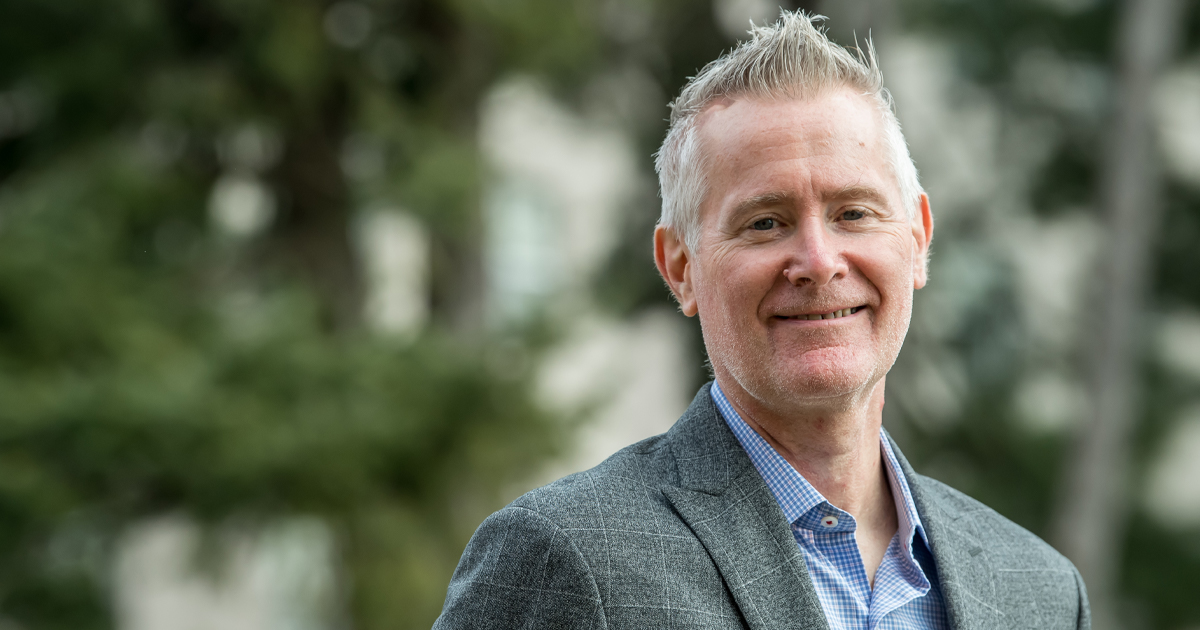La Salle University
Meet the director of La Salle’s Student Health Center
R. Scott Cook, D.O., joined the University in November. He is part of a leadership team guiding La Salle’s efforts to keep the campus community safe during the COVID-19 pandemic.
R. Scott Cook, D.O., joined La Salle University in November as director of its Student Health Center and team physician for La Salle Athletics. It didn’t take long for Cook to identify what he appreciated most about La Salle.
“Right away—maybe even in my first week—I identified with that sense of community here. Honestly, that’s very much why I’m here,” Cook said. “It was missing in my life and in my career. I had to find a way to it and there’s a clear pathway at La Salle.”
Cook is part of a University-wide leadership team focused on guiding La Salle through its return to an in-person, on-campus experience for the spring semester.
Cook’s career has positioned him for this moment.
He arrived in Philadelphia in 1997 to begin medical school, later earning his doctorate in osteopathic medicine from Philadelphia College of Osteopathic Medicine in 2001. In the years since, he has tended to patients’ needs in private practice and helped cultivate the next generation of medical professionals while working with countless students in residencies and fellowships. He’s also given national and local lectures and, most recently, spent 12 years consulting with three Major League Baseball clubs as a traveling team physician.
Cook, 53, a native of Pottsville, Pa., and the father of four sons, resides in the Philadelphia suburbs. Get to know Cook and learn more about his approach and strategy in maintaining the health of La Salle’s community during the pandemic:
What’s your professional approach to medicine?
“To me, it’s always been, ‘We’re doing it together. You’re not just coming to me for an answer. We’re here, working together.’ That, I would say, has been my approach throughout my career.”
How do you accomplish that mission in your role at La Salle?
“It’s a challenge right now as anyone could attest. It’s been important to keep my eye on the big picture by focusing on the little things that make everything come together—the small bricks, for example, that have to go down before I lay concrete.”
Early in your career, how do you get involved with Major League Baseball?
“It kind of fell in my lap. I had done some lectures and research on a condition called chronic exertional compartment syndrome, which affects the forearm, and there is not a lot out there on this condition. I wrote a few papers and gave a few talks. One of the higher-ups with the San Francisco Giants heard me at a conference and, before I knew it, I received a call. That’s how it all started.”
Regarding your role at La Salle, why is your presence here so critically important?
“I don’t take my role lightly and I don’t take my role as authority. We have developed the plan and protocols. Our return team at the university bridges faculty and staff members who have unique skillsets that we bring to our work and in building a comprehensive return plan. I’m proud of what we are accomplishing. It’s no small feat. We should take pride.”
Can you provide an update on the University’s testing center, which you are helping lead?
“Our team at the testing center continues to demonstrate its strong commitment to this important work. I’ll give you an example: In the earliest days, and through to today, we have heard testimony from members of our community who express their appreciation for just how efficiently the testing center is operating. From start to finish, La Salle’s students, faculty, and staff are being tested and getting their results in 15 minutes or less. More importantly, our team is showing great care and compassion in administering tests. That’s a credit to everyone who is staffing the testing center—including faculty and students from the School of Nursing and Health Sciences, and staff from the Paul A. Stanton Department of Student Wellness Services.”
What can our community do in order to be as safe and healthy as possible?
“The most important thing we all can do in coming back to campus and moving forward is taking a moment to breathe and pause and be aware. I would encourage our community to worry about today—not tomorrow, not next week, not the time when we can return to what we knew as normal. Let the moments pass. Let’s be patient with them. We’re all going to get there. We’re all in this together. Each one of us is going through our struggles and difficulties. We’re finding a way to handle, and it’s OK to vocalize that and share that with each other. My encouragement to everybody is we’re going to get to the other side of this together. It’s always easier to get through a trying situation if we’re walking alongside someone else and doing it together.”
—Christopher A. Vito
